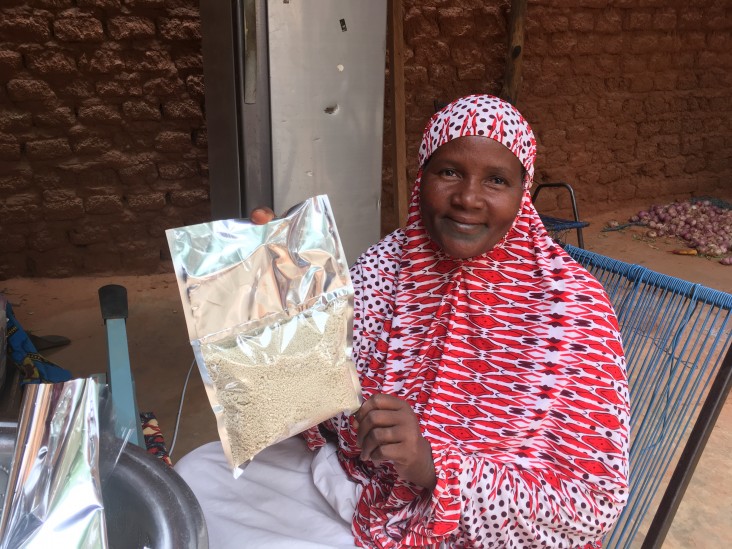Speeches Shim

August 2018 — Women entrepreneurs in Mali are getting the support they need to take risks, challenge the status quo, access credit and manage their businesses.
Cissé Fanta Bah is an agrifood processor and the president of a women producers’ organization called Ton Kamono. She is one of the many rural women benefiting from a USAID mentoring program in the town of Bankass located in the district of Mopti.
USAID’s Cereal Value Chain (CVC) project is empowering rural women in the agricultural sector by strengthening their managerial skills, promoting small and micro enterprises, and encouraging women to become entrepreneurs.
Eager to learn, Bah participated in training sessions during 2017-2018, particularly those related to good agricultural practices and connecting with financial institutions and agricultural input suppliers.
During 2017, more than 700 women benefited from mentoring and food processing activities. And now more than 20 producer organizations have female members for the first time, with the number growing. In addition, the mentoring program assisted 19 new women business leaders, 12 in the Mopti region.
“Since my training on marketing, record keeping, price determination, and access to credit, my whole life changed because I know exactly what to do and how to do it,” said Bah.
She stood out from the others by immediately putting her knowledge into practice. In 2017, for the first time, Bah applied for credit and received a loan of $943 from a USAID–supported microfinance institution to jump-start her cereal processing activities.
That same year, she participated in the SIAGRI International Agriproducts Fair organized in Sikasso, presenting various cereal products which she sold for a profit of $1,698. SIAGRI is one of three annual agricultural fairs carried out on a national scale. It provides an opportunity for local processors — mostly women — to strengthen their networking among other local processors, assess product markets, and develop new and improved products to boost their sales and competitive advantage.
Now a trainer and mentor herself as a result of the skills she gained from the CVC project, Bah used her profits from the fair to buy land and build a training center where she plans to share her knowledge of food processing.
Following her success as a trainer, she also participated in an agricultural fair in the northeastern city of Kayes, where she revealed a cereal-based biscuit that was a hit. Many other processors asked for her recipe, which includes millet, maize, rice and cowpea. After the fair, she continued to share her success by organizing a training session to teach 45 processors her newly developed biscuit recipe.
“In addition to being the mentor for the project in Bankass, I am today a trainer in agrifood processing thanks to CVC,” said Bah.
The five-year USAID Cereal Value Chain project is part of the U.S. Government’s global hunger and food security initiative, Feed the Future. The project, which began in 2014, covers the Sikasso, Mopti and Timbuktu regions and has helped more than 50,000 farmers apply modern technologies and management practices.
LINKS
Follow @USAIDMali, on Facebook

Comment
Make a general inquiry or suggest an improvement.